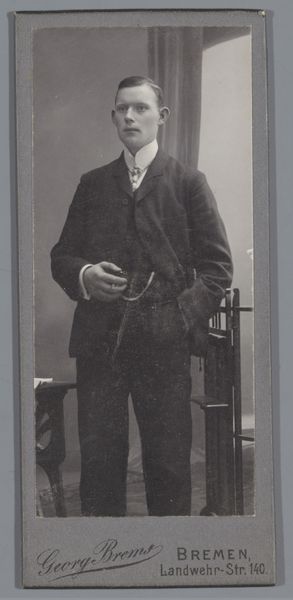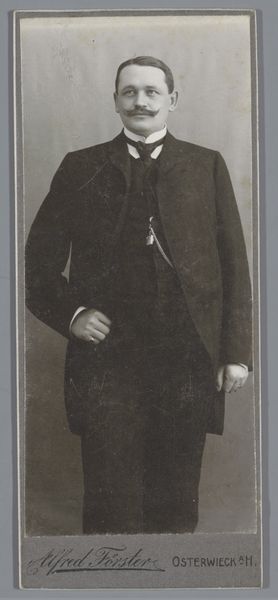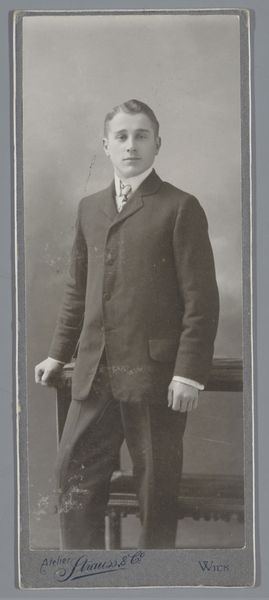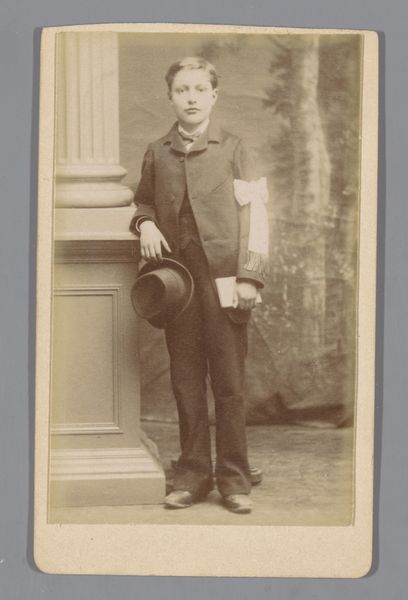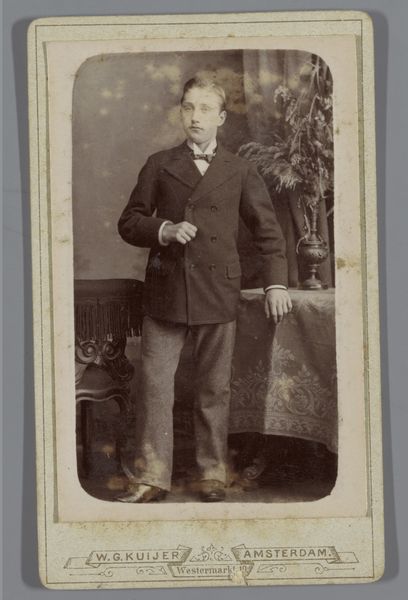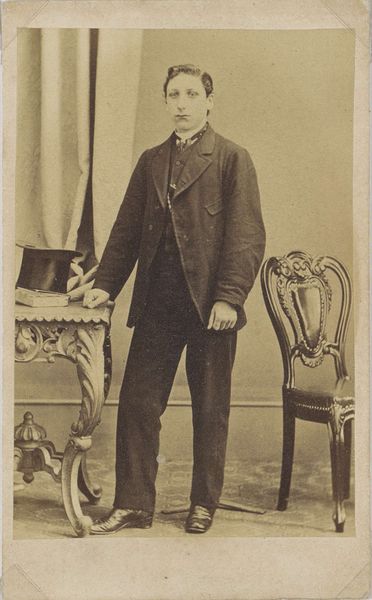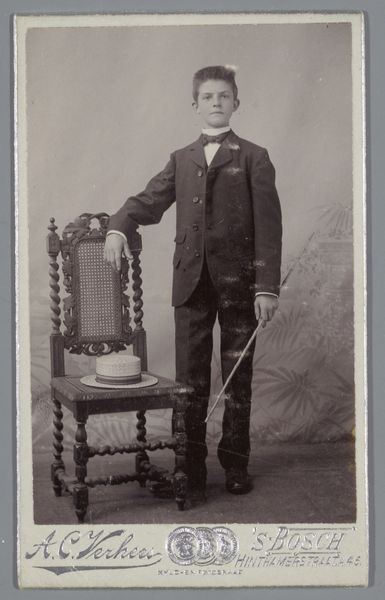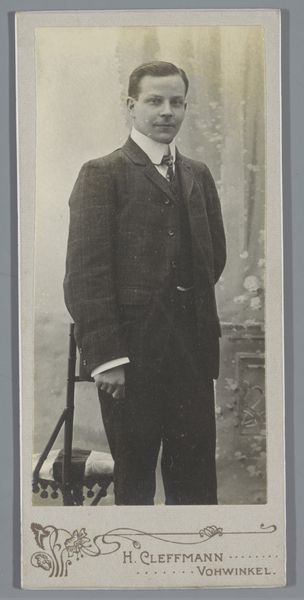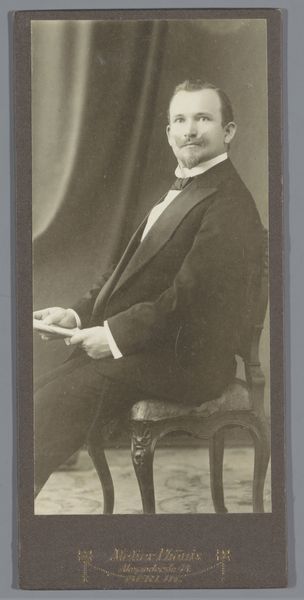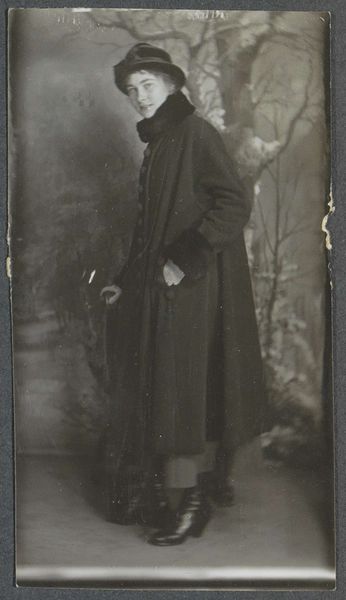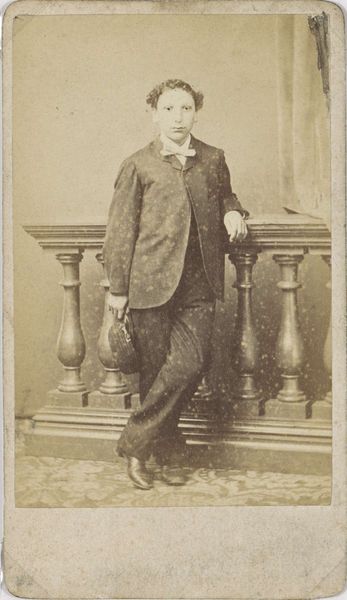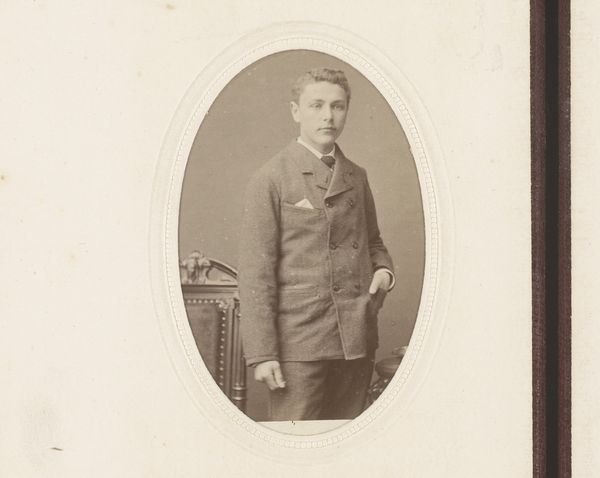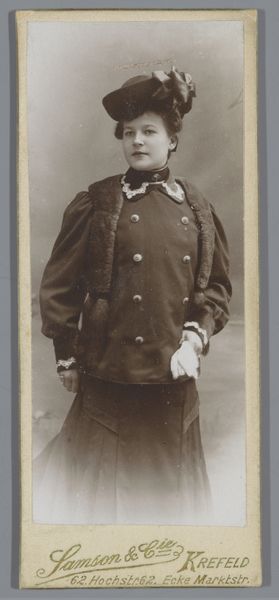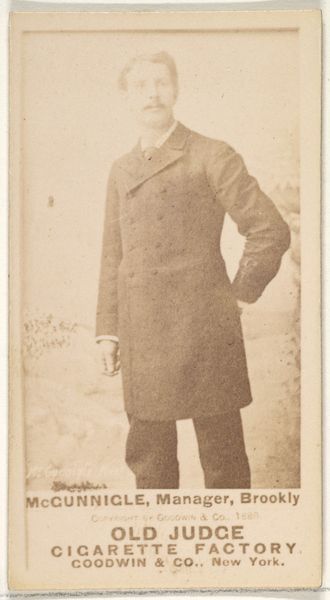
daguerreotype, photography
#
portrait
#
male fashion
#
daguerreotype
#
archive photography
#
photography
#
historical photography
#
historical fashion
Dimensions: height 111 mm, width 51 mm
Copyright: Rijks Museum: Open Domain
Editor: We’re looking at a photograph entitled “Portret van een man, aangeduid als Anton Zettner,” possibly taken between 1907 and 1909 by Sigmund Bing. It's a sepia-toned portrait of a man, formally dressed, holding a cane. I'm struck by how the photographer used light and shadow to create such a sense of depth despite the limited tonal range. What do you make of its formal qualities? Curator: The formal strength resides in its manipulation of line and texture. Consider the hard, near vertical lines of the cane that almost exactly bisect the image as opposed to the much softer, curved line of the pocket watch chain or the subtle texture and shading in the clothing fabrics. Then think about the lines formed by the tailoring – the angles of the jacket lapels for example. They pull the eye upward towards the focal point, which is his face. What's particularly noteworthy is how Bing avoids creating any clear or strong lines directly in that face. Editor: That’s a great point about the contrast between hard and soft lines and how it all converges on his face. Is the composition meant to portray anything specific about the subject? Curator: The composition suggests careful construction. It’s designed, certainly. Yet what's most important is how these structural elements communicate within the context of photographic portraiture. It achieves its power precisely because the photographic technology allows these elements, though carefully planned, to seem lifelike and to highlight realistic details that elevate its effect. What did you originally think of that tone? Editor: Initially, I thought it made the photo look old. But looking closer, I see that it also brings out all these nuances you’ve pointed out. I didn’t see that the first time! Curator: Exactly! The photograph's artistry works precisely by leveraging photography's capacity to render texture, shadow, and light that shapes our perception. Editor: That makes a lot of sense! Thinking about the composition in terms of the light, line, and texture adds so much to how I view it now.
Comments
No comments
Be the first to comment and join the conversation on the ultimate creative platform.
